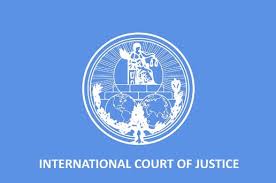Choice of Jurisdiction in Private International Law
Choice of Jurisdiction in Private International Law refers to the legal principles and rules that determine which country’s courts have the authority to hear a cross-border (transnational) civil or commercial dispute. It is a critical component of private international law (or conflict of laws) and interacts closely with choice of law and recognition and enforcement of foreign judgments.
🔹 What Is Jurisdiction in Private International Law?
Jurisdiction is the power of a court to hear and decide a case. In the international context, it concerns which country’s courts are competent to adjudicate a dispute that has foreign or cross-border elements.
🔹 Types of Jurisdiction
Jurisdiction by Agreement (Choice of Court Agreements)
Parties in a contract may agree in advance on which country's courts will resolve any disputes.
These agreements are generally respected under principles of party autonomy.
Hague Convention on Choice of Court Agreements (2005) governs such agreements internationally.
Jurisdiction by Operation of Law (Forum Conveniens)
In the absence of agreement, courts use legal rules to decide jurisdiction:
Defendant’s domicile or residence
Place where a tort occurred
Place of performance of a contract
Common law systems may apply the "forum non conveniens" doctrine, allowing courts to decline jurisdiction if another forum is more appropriate.
Exclusive vs Non-exclusive Jurisdiction
Exclusive: Only one forum has jurisdiction (by agreement or statute).
Non-exclusive: Multiple forums may be competent, but one may be more convenient.
🔹 Factors Affecting Choice of Jurisdiction
Connection of the dispute to the forum (e.g., domicile, business, location of assets)
Convenience for parties and witnesses
Risk of parallel proceedings or conflicting judgments
Enforceability of court decisions
Availability of impartial and fair process
🔹 Key Instruments and Legal Systems
EU Regulations (e.g., Brussels I Recast)
Harmonizes jurisdiction rules within the EU
Emphasizes defendant’s domicile as a basis of jurisdiction
Enforces choice of court agreements
Hague Conventions
2005 Convention on Choice of Court Agreements
Promotes certainty and enforcement of jurisdiction clauses globally
2019 Hague Judgments Convention
Addresses recognition and enforcement of foreign judgments
Common Law vs Civil Law Systems
Common Law: Greater discretion (e.g., forum non conveniens)
Civil Law: More rigid, often based on codified rules
🔹 Challenges in Choice of Jurisdiction
Jurisdictional conflicts and forum shopping
Asymmetry in access to justice between wealthy and less-resourced parties
Enforcement of foreign judgments not guaranteed in all cases
Evolving rules in online and digital cross-border disputes
🔹 Example Case
Suppose a US company sues a German company over a contract breach. The contract says disputes will be resolved in the courts of England. Even though the dispute has no connection to England, courts in many countries will respect this clause based on party autonomy (especially if those countries are parties to the 2005 Hague Convention).
🔹 Conclusion
Choice of jurisdiction is a cornerstone of private international law. It ensures predictability and fairness in cross-border disputes, balancing party autonomy with legal protections and public interest. Lawyers drafting international contracts must carefully consider jurisdiction clauses, and courts must interpret and enforce them within an evolving international legal framework.
Do write to us if you need any further assistance.












comments